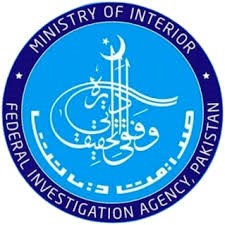Islamabad (By Ehsan Bukhari) :
A major land fraud scandal has come to light in Jhelum, where plots allocated to Kashmiri refugees have allegedly been misused through tampering of official records. The case, reportedly involving officials from the Ministry of Kashmir Affairs, has sparked outrage over the lack of accountability, particularly as the main accused — a powerful tehsildar named Nadeem Barth — remains free despite the issuance of arrest warrants more than two months ago.
According to official sources, the Federal Investigation Agency (FIA) registered an anti-corruption case against Nadeem Barth, who is a close relative of both a federal minister and a Punjab provincial minister. The accused is alleged to have manipulated allotment records and authorized illegal property registrations in Rathian Colony, Jhelum — an area specifically reserved for Kashmiri refugees under directives from the Ministry of Kashmir and Gilgit-Baltistan Affairs.
Three individuals arrested in connection with the case reportedly confessed that Barth, acting in his capacity as sub-registrar, was responsible for executing illegal registries. Despite the FIA obtaining arrest warrants, Barth has not been apprehended. Sources claim he may have received protection through connections with an influential FIA official.
Rather than suspending the accused tehsildar, the Punjab government controversially transferred him to a new post in Hafizabad, raising concerns over political interference and lack of action in a high-profile corruption case.
FIA officials advised Barth to seek interim bail and appear before the court, but he has neither secured bail nor presented himself. Meanwhile, the three other suspects who were arrested in the case have had their bail applications approved.
Efforts by journalists to contact Nadeem Barth for his stance on the allegations were unsuccessful. He did not respond to phone calls, and messages sent to his WhatsApp remained unanswered.
The case continues to highlight deep-rooted issues of political influence, corruption, and administrative inaction in Pakistan’s handling of public land allocated for vulnerable populations.


